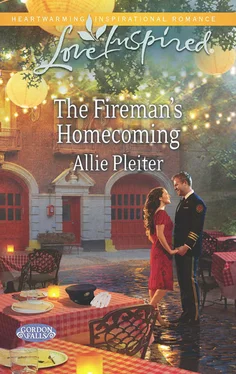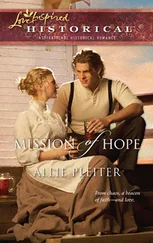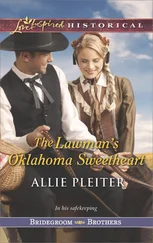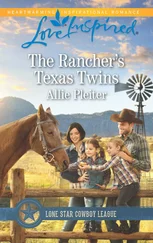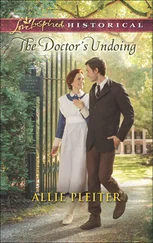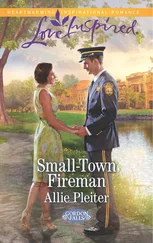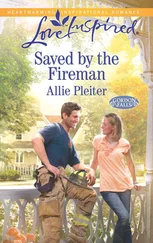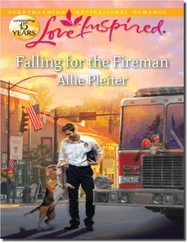Melba fiddled with the plastic pitcher of ice water on the bedside tray. Her anxious curiosity about his outburst was like an undertow, pulling her off her feet no matter how she scrambled for shore. Against every instinct, knowing it would be fruitless, she still couldn’t stop from asking, “So, what did you want to talk to Mom about?”
“Did I ask for... Hey, why are you wearing my ring? On your thumb? Give that back, it looks ridiculous on you like that.” He reached for her hand only to wince when the tension on the IV line tugged at the needle in his hand. He scowled, a seven-year-old’s tantrum brewing under the wrinkles of his fifty-eight years.
Melba poked her thumb into the air. “I kind of like it. All the cool kids are wearing rings on their thumbs now.”
“You’re twenty-six, not a cool kid, and I want that back.”
How could he do that? Remember her age with stunning clarity and then forget his wife of nearly thirty years had died? He’d phoned Melba a month ago—at work no less—and asked her calmly what she wanted for her sixteenth birthday. The day-to-day randomness of his disease hurt almost more than the ultimate decline it heralded. “You eat all that delightful turkey dinner on that plate so Doc Nichols signs off on your release, and I’ll hand it to you personally.”
Dad picked up a fork and poked at the beige slab in questionable gravy. “Do they think I’ve already forgotten what real food tastes like?”
Melba hated when he made those kind of comments—the ones that hinted he knew how far he’d slipped and how fast. Alzheimer’s at this age was bad enough, but to be aware of your own decline seemed too cruel for anyone. She wanted to run into the bathroom and sob but she plastered a smile on her face. “Think of it as incentive. Choke down the bad food so you can go home to Barney’s good cooking.”
Dad smiled at the mention of the hefty woman who came every afternoon to tend house and fix him dinner. Barbara Barnes, or “Barney,” as everyone called her, had insisted on coming by daily even after Melba moved in. “Barney’s meatloaf,” he sighed, resigning himself to the penance of hospital turkey.
She gestured like a game-show hostess. “And it could be yours if you just behave for one more day.”
“I’ll share.” He hoisted the fork in her direction.
Melba held up a hand. “No, thanks. I’ve got someone bringing me Dellio’s in a few minutes. I may even let you have a fry if you polish off your turkey.” It sounded so horridly parental, the unnatural role reversal of eldercare lamented by every book and friend.
“Well, isn’t that dandy, you getting one of those cheeseburgers you like so much and leaving me with these mushy peas.”
Melba sighed. She’d been a vegetarian for six years.
* * *
Clark checked his watch and winced. “You know, Plug, I need to ban the phrase ‘I’ll be right back’ from my vocabulary.”
The firehouse dog offered a sympathetic woof that sounded far too much like “I told you so” before wandering off to the kitchen.
Clark followed. “Hey, Pop? Do you know when visiting hours are over at the hospital?”
“Eight,” came his father’s voice over the usual meal-time chatter from the firehouse dining room.
It was seven-fifteen. An hour after he’d promised Melba Wingate he’d be “back in fifteen” with a meal from Dellio’s. Clark glowered at the pager fixed to his belt. “What? Do you have some kind of radar to know when it’s the worst time to go off?” Some days that little black device felt more like a ball and chain than lifesaving technology—especially when it signaled a false alarm like it had this evening. If he ever got his hands on the kid who pulled that fire alarm over at the high school, it wouldn’t be pretty. “Do you know if you can hear the siren over at the hospital?” It was a slim chance Melba heard the siren and realized he’d been called into duty, but it was better than her thinking him a jerk.
Pop poked his head up from the pot he was stirring. He rarely went out on calls anymore, so he was in a red apron and holding a bowl of chili—it had become his role to ensure everyone got fed once they came in off a call. “I expect not. Folks need to get their sleep over there, you know. You want cheese on yours?”
Clark grabbed his keys off a hook in the hallway. “I’ll pass. I was supposed to be somewhere an hour ago.”
“You need to eat and they’ll understand.”
Clark shrugged his shoulders. “I’m not so sure.”
Pop sat back on one hip. “Who’s not going to understand a volunteer firefighter going out on call?” It was more of an accusation than a question. Chief George Bradens brooked no disrespect whatsoever where the Gordon Falls Volunteer Fire Department was concerned. Besides, Clark had made plans to have dinner with his dad even before the call. Before Melba.
“I met Melba Wingate over at the hospital. Mort’s daughter. She looked in a bad way, so I told her I’d run and get her something from Dellio’s and bring it back to her so she wouldn’t have to leave her dad.”
Some kind of weird shadow passed over Pop’s face. “She’ll get over it. She just hasn’t lived here long enough to remember what it is we all do around here.”
“Maybe, but I feel bad.”
“Well, you ought to.”
“Even if I stop by Dellio’s first, there would still be a half an hour of visiting hours by the time I could get to the hospital. I’ll try a last-ditch effort in case she’s still there. You’ll still be here when I get back, right?” he called as he ducked out the door. After two seconds he circled back to add “Mort’s doing fine,” but not before he realized Pop hadn’t asked after Mort.
Which was odd because Pop asked after everyone. Pop was like Gordon Falls’s universal grandfather, poking his nose into everyone’s welfare. He’d always thought there was something odd about the chill between those two, but then again he’d just stood Pop up for dinner. Again. So much for trying to prove to his father that he’d put his old, irresponsible ways behind him. Why was it he had such a gift for disappointing people? He put it from his mind as he thumbed through his cell phone to the listing for Dellio’s “call ahead and pick up” line.
Chapter Two
Clark knocked on the hospital room door even though it was partway open. “Better late than never, I hope.”
The pile of snack wrappers on the side table by Melba made him wince. She looked worse than earlier, looking over her shoulder at him with weary eyes. Her father seemed to be dozing, his head turned toward the window and a blanket tucked up over his thin shoulders. He didn’t know Mort all that well, but it didn’t take a lot of familiarity to see the man was in bad shape. His thin, wiry body slumped without energy against the hospital bed.
“That was a long fifteen minutes.” Her words were lifeless, as if she were too tired to be angry.
Clark palmed the pager at his side. “Got a call. Normally I take cell numbers because this kind of thing happens all the time, but I didn’t have yours. Sorry I kept you waiting.”
She pushed a strand of hair out of her face. She wore exotic, artsy jewelry on several fingers—the handmade kind with lots of colored stones—and a bulky gold band on one thumb. “It’s okay.” He looked past the dark brown curls to see red-rimmed eyes. She’d been crying.
“No, it’s not.” He kept his voice soft as he walked farther into the room. “Hey, look, are you going to be okay? No offense, but you look like you need a lot more help than just a decent meal.”
She took a deep breath and swept up the pile of wrappers into the trash can. “It’s been...a bit rough today, that’s all. Harder than I thought.”
Читать дальше
